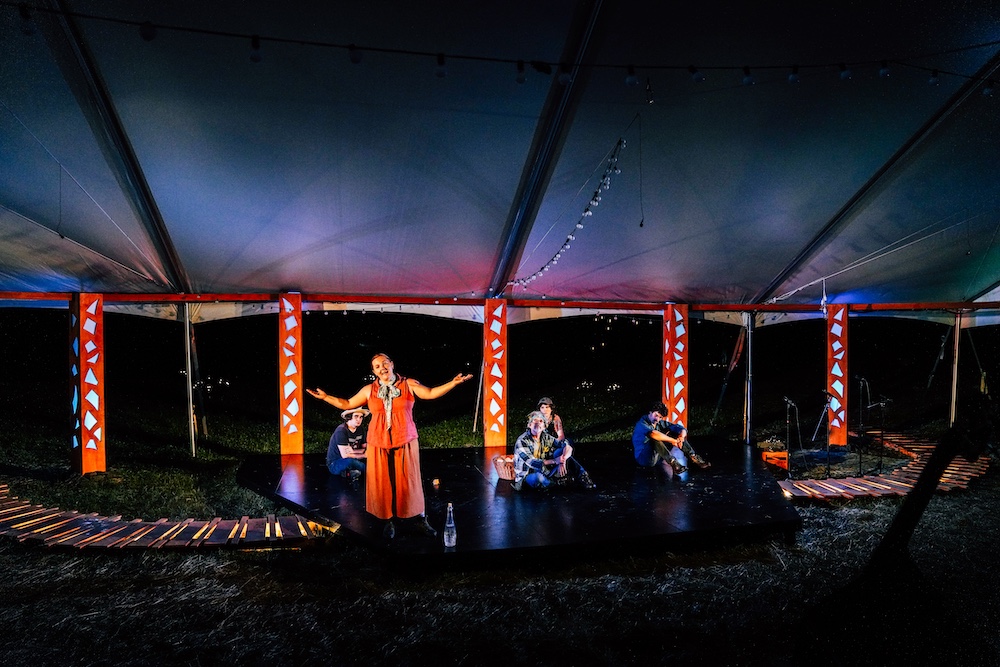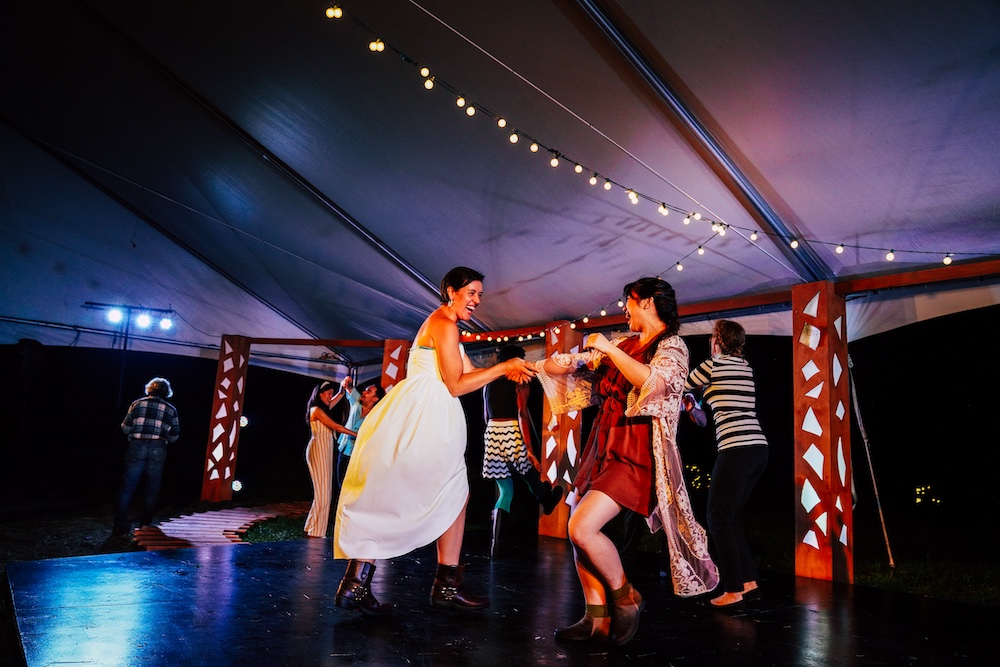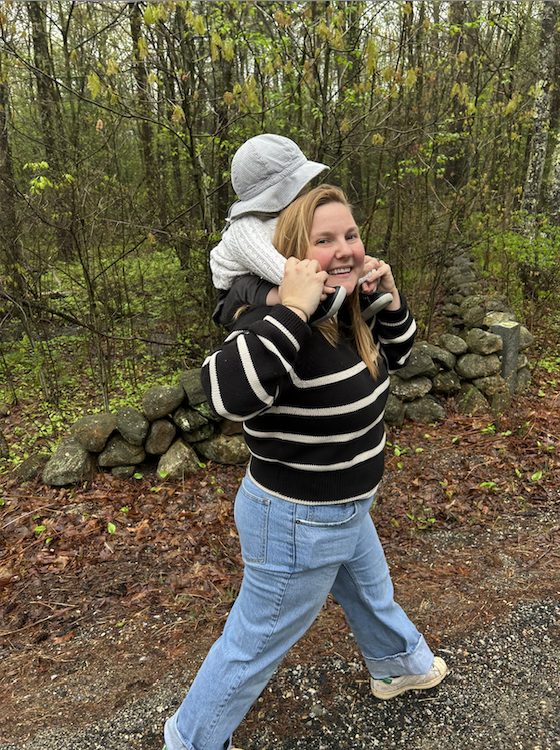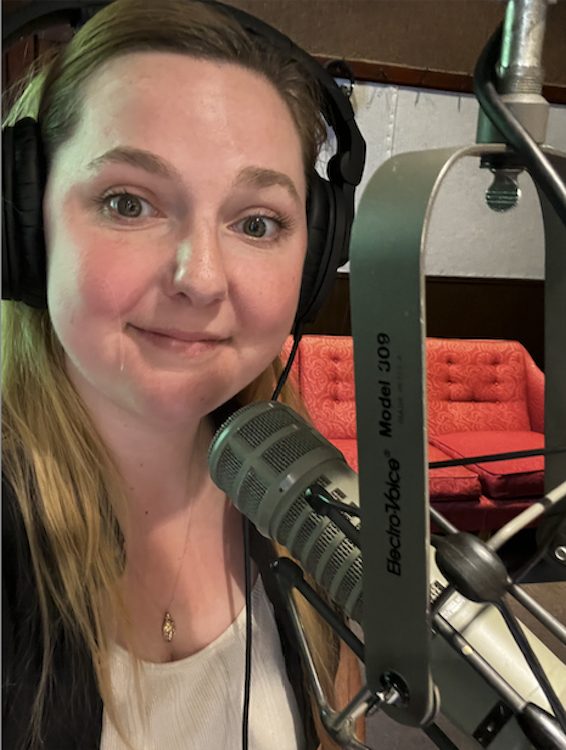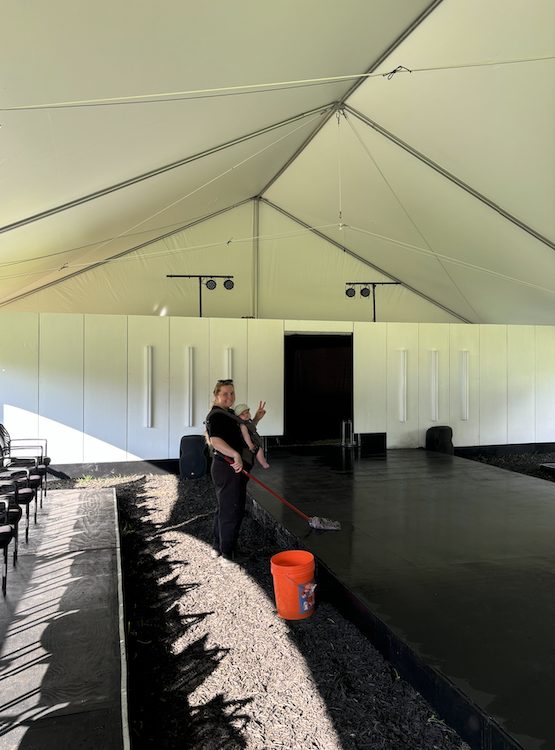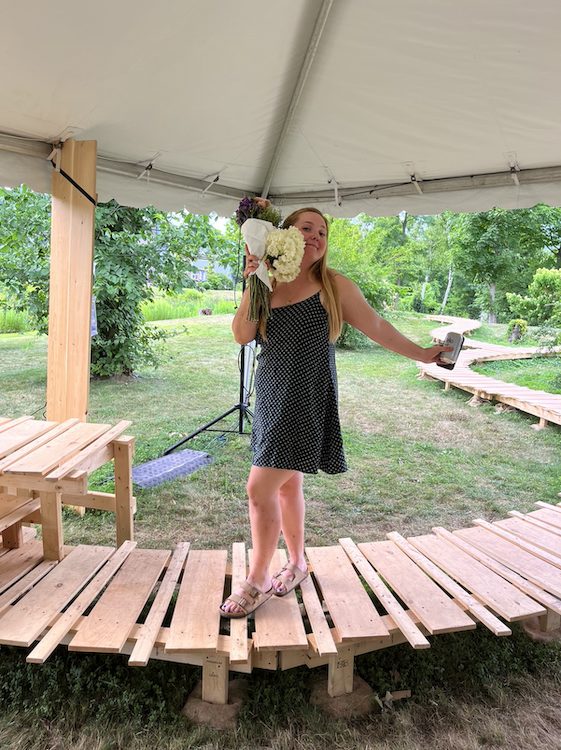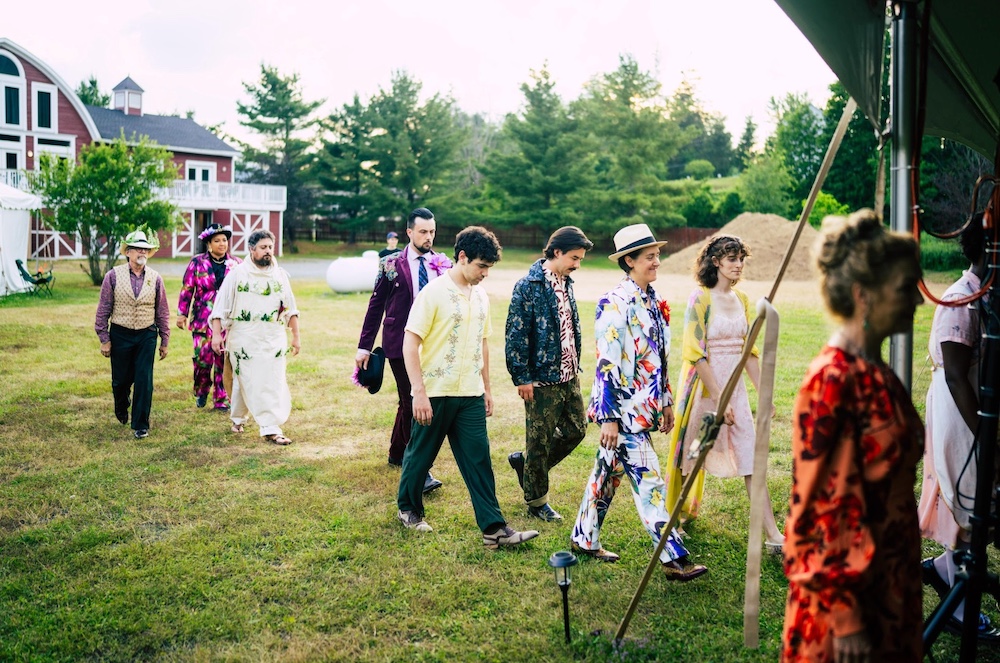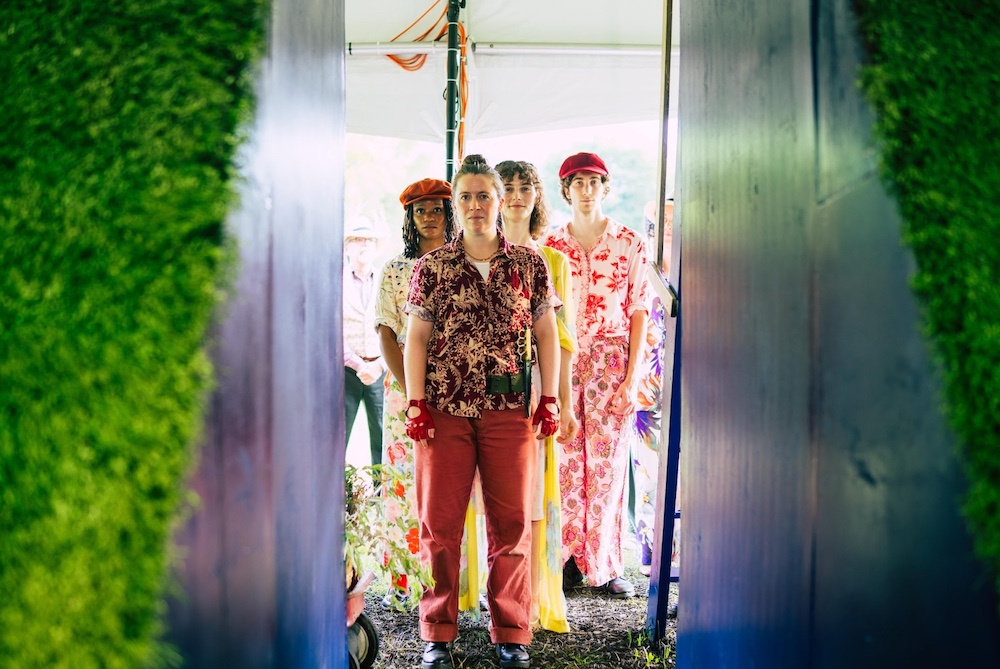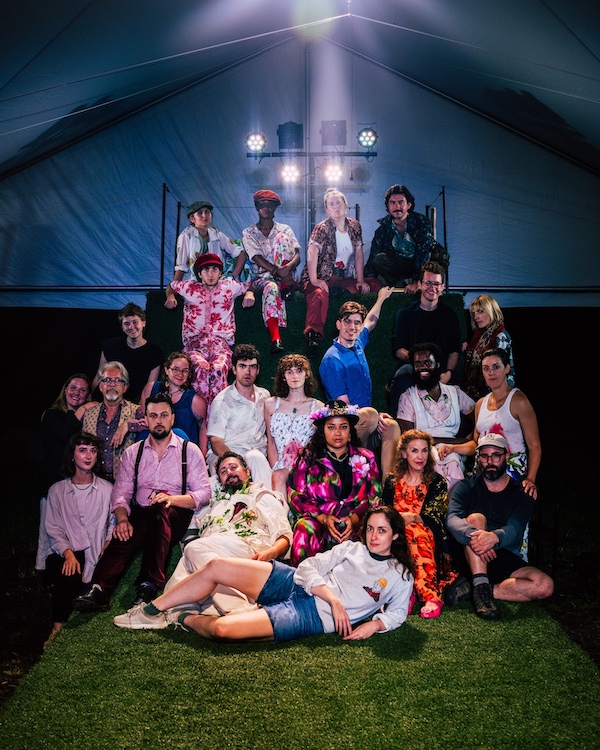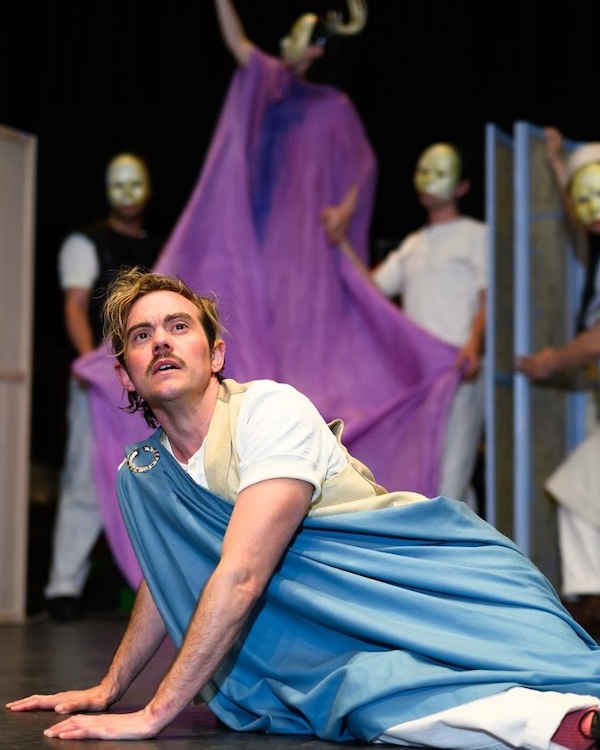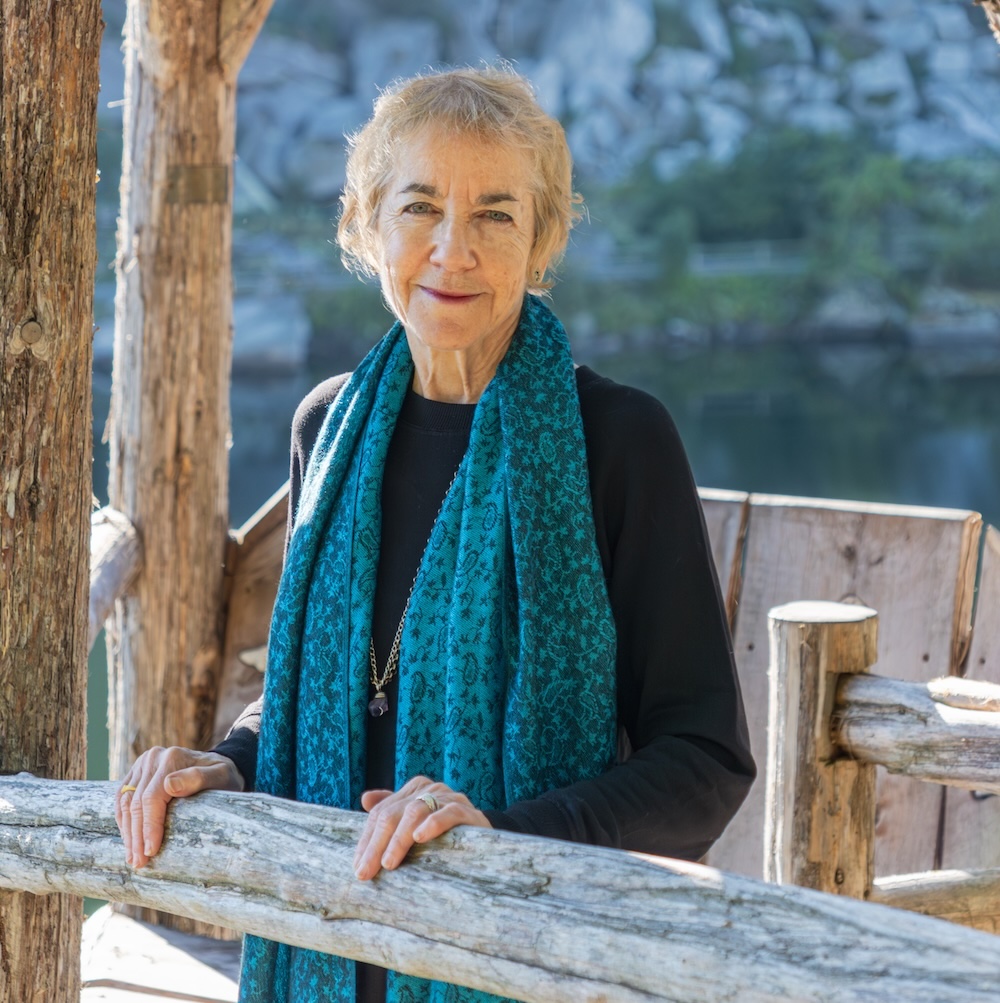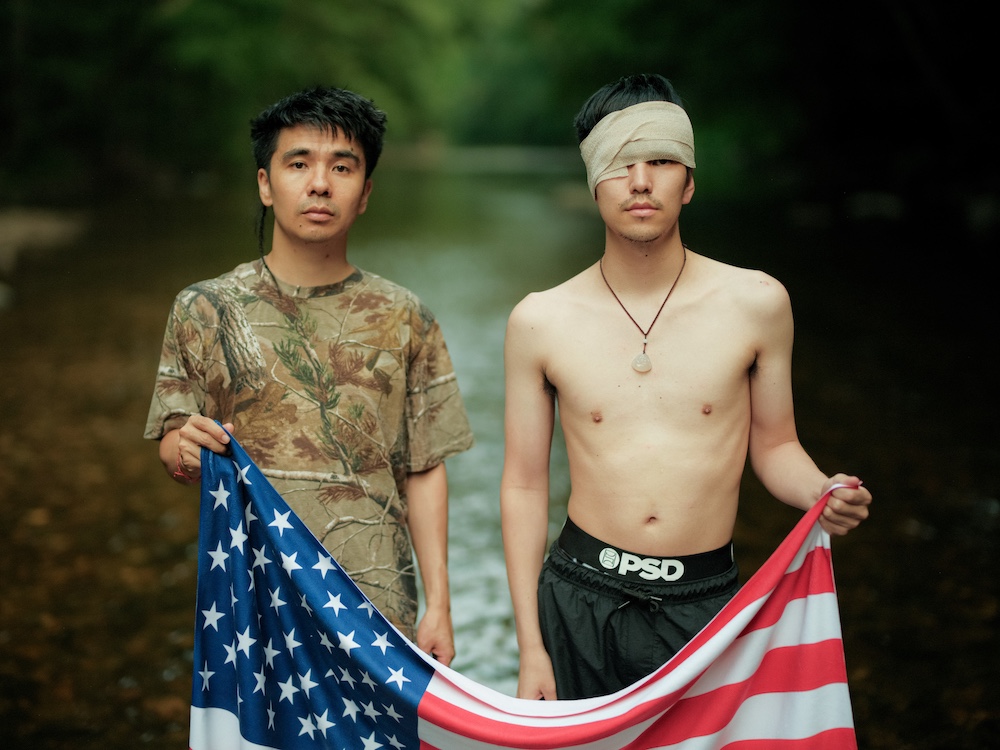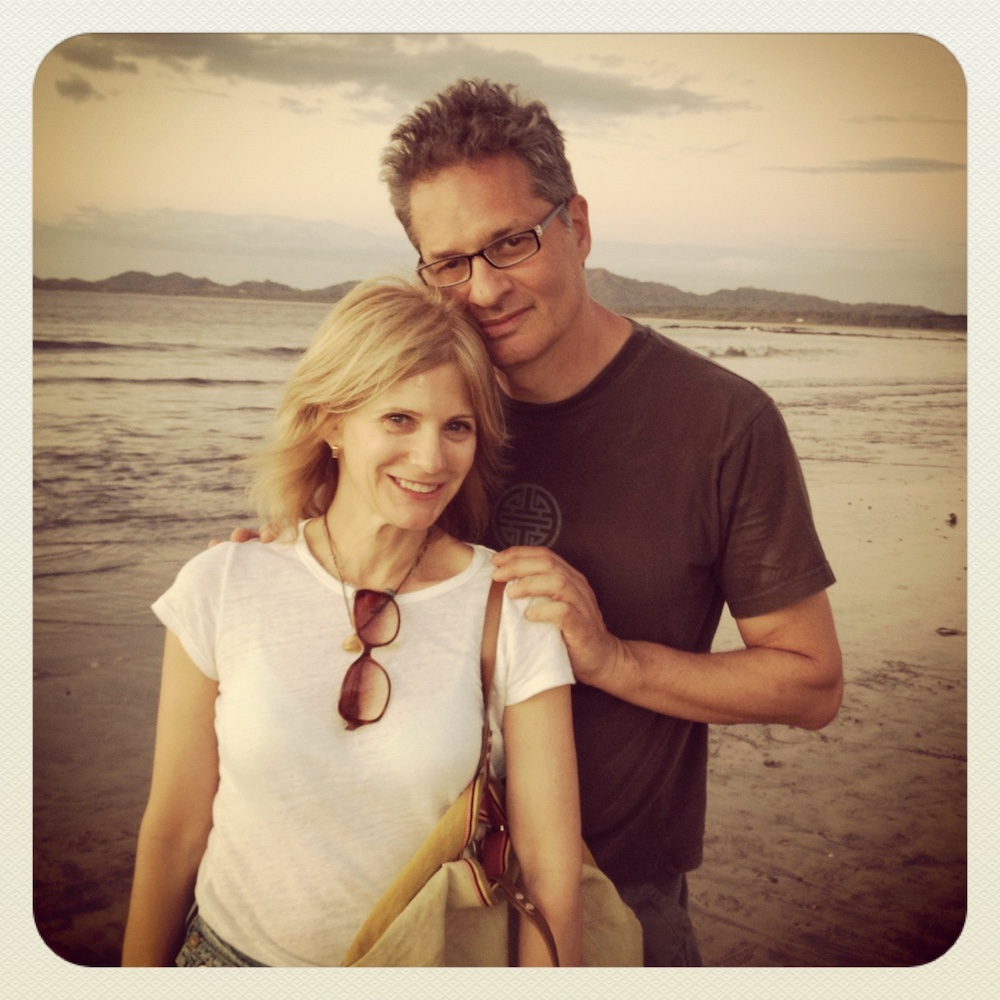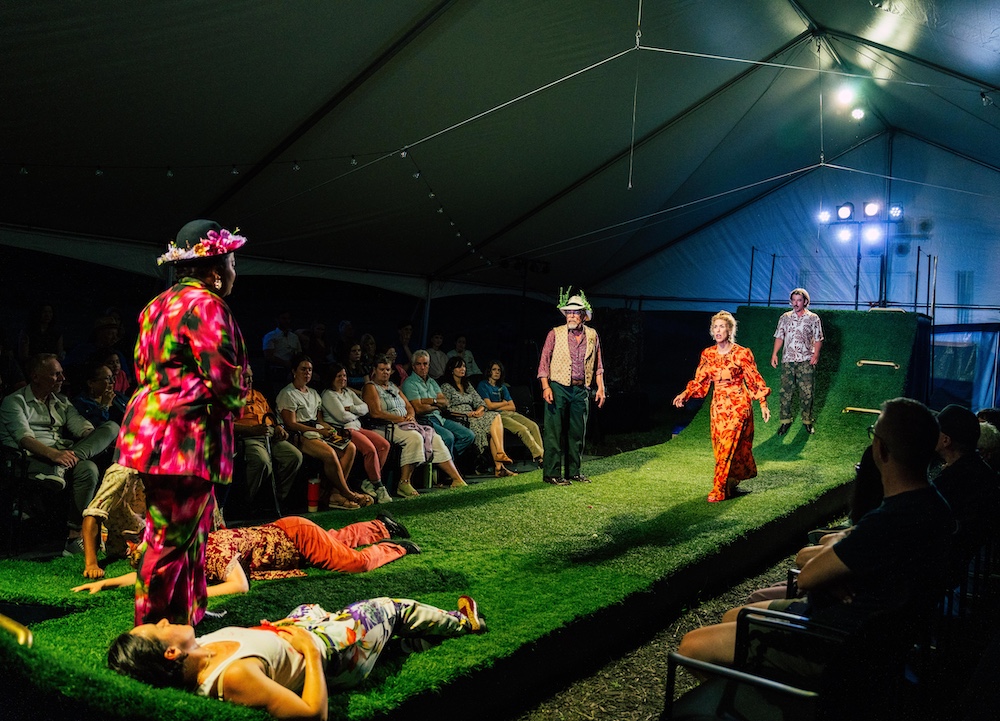
33 1/3 & Under: Meet Sarah Reny, Founder of Catskill Mountain Shakespeare
Thanks to West Kill’s Sarah Reny, lovers of “the Bard” need not venture to the Globe Theater in Stratford, England, or the Delacorte in NYC’s Central Park to get their fix of the works of the world’s most renowned and influential playwright, William Shakespeare.
In 2020, 32-year-old Reny, a native of Montreal who trained at the London Academy of Music and Dramatic Art, launched Catskill Mountain Shakespeare (CMS). Since its inaugural production of Twelfth Night under the tent at the Emerson Resort in Mt. Tremper in 2021, Catskill Mountain Shakespeare has woven the timeless beauty of this venerable playwright’s classic texts with contemporary sound and staging, often in outdoor locations throughout the Hudson Valley’s breathtaking landscape. CMS’s 2025 season has been its most successful yet, with a main stage production of Romeo and Juliet at the Red Barn in Hunter, complemented with a 13-performance community and school tour of Pericles, along with free acting workshops, low- and no-cost events, and much more.
Bringing Shakespeare to the Hudson Valley is just one part of this busy, young mother’s life. In addition to her work with CMS, Reny maintains a career as a much in-demand voiceover artist.
To hear how this unique woman’s love of the Bard can co-exist with a passion for dive bars and karaoke, read on.
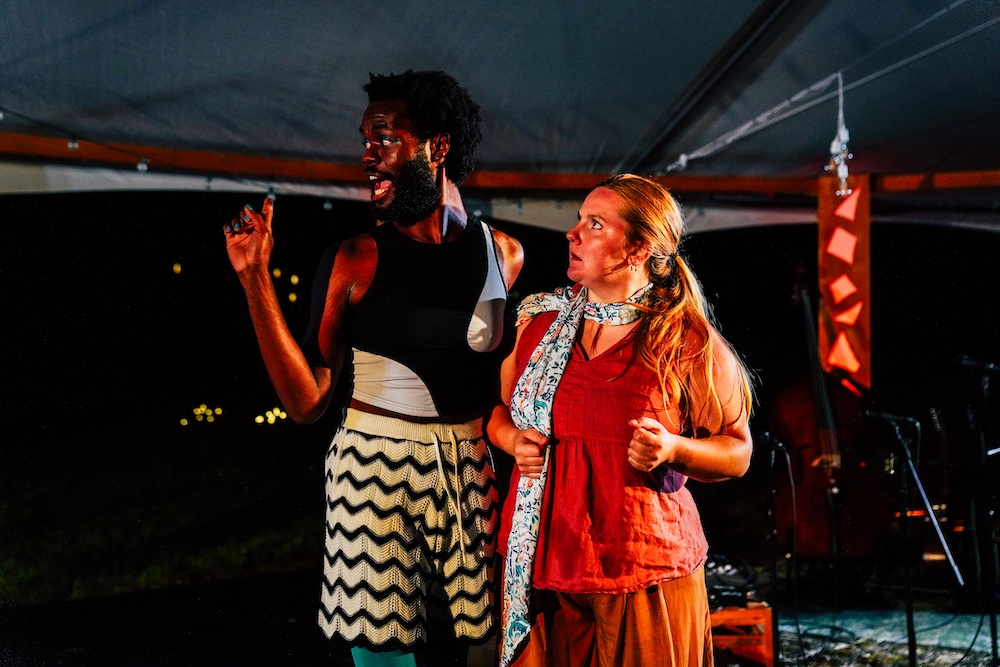
Photo by Rich Wade
- Photo by Rich Wade
- Photo by Rich Wade
INSIDE+OUT: You were originally from Montreal but spent a good deal of time studying and working in the United Kingdom. So, what was it that brought you to the Hudson Valley?
Sarah Reny: After leaving London, I moved to New York City. I was cutting my teeth as an actor, auditioning like mad, bartending, nannying, and living a very typical young-actor life. My partner moved to The Catskills in early 2019 for work, and I began splitting my time between here and The City. I fell in love with the mountains immediately. One day, about six months later, I woke up and the idea for Catskill Mountain Shakespeare was just… there. It was complete, and it’s exactly the same vision I have for CMS to this day. I made the move full-time when I became pregnant with my son in 2023.
When did you become interested in pursuing a career in theater? Is it something that goes way back to your youth, perhaps seeing a specific production or film? And what were some of the productions that shaped your view on the medium?
I started acting when I was seven, and I wish I remembered what sparked my interest. My parents are very traditional people; my mom stayed home, and my dad worked. I don’t think I’d ever even seen a play. But I began begging, desperately (and likely very dramatically, as young actors tend to do!) to take acting lessons. Apparently, I was adamant that I wanted to be on stage, and not in movies, and it’s funny to think I noticed a difference at such a young age.
In terms of what shaped my view on theater, the most defining time was undoubtedly when I was studying at the London Academy of Music and Dramatic Art. Between my conservatory training and seeing more excellent, inventive, exciting, and accessible plays than I ever had in my entire life, I can trace almost all of my artistic values back to that time. Specifically, Emma Rice, who was the artistic director at The Globe Theater at the time, shaped my often-irreverent feelings towards many of the more “traditional” Shakespearean values (gender, design, acting style, casting, to name a few). At the same time, my training really instilled the importance of many of those same values – clarity of storytelling, rigor in the body, voice, and text, a respect for the audience. Additionally, theater is such a ubiquitous part of British culture and life that it’s not considered high-brow. And that boils down to the fact that it’s affordable. I saw everything when I lived in London, probably a show a week, while living on a student budget. That accessibility has really stuck with me.
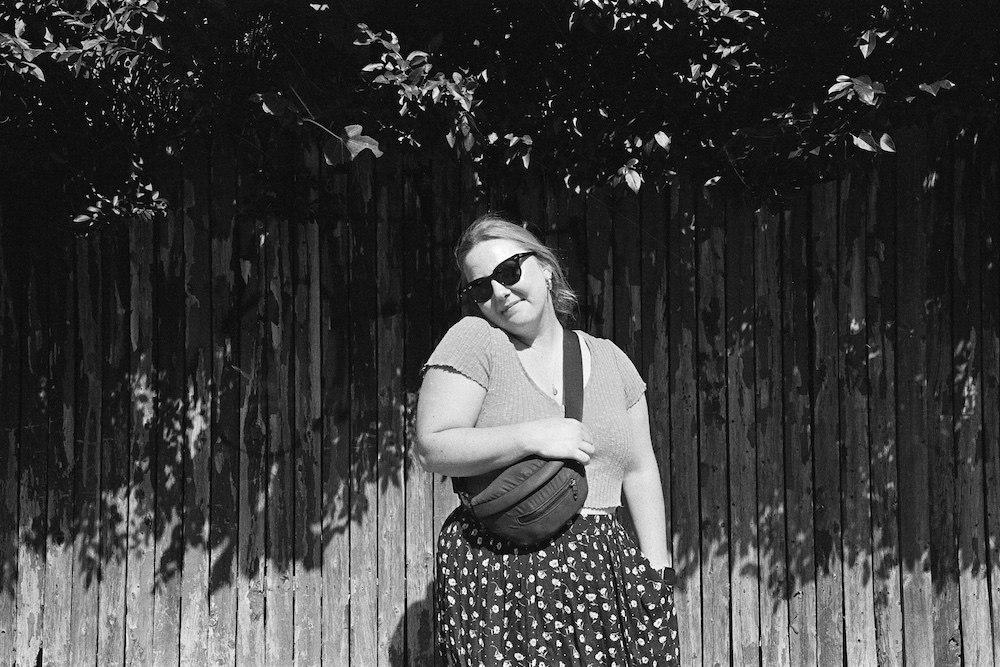
Photo by Sophie Sahara
- Photo by Frank Wilderman
- Photo by Maggie Kent
You hold a Master’s in Classical Acting from perhaps the world’s most prestigious institution, the London Academy of Music and Dramatic Art (LAMDA). What was this experience like, and how did it set you on your course as an actor and a director?
It was, without a doubt, the most integral part of my artistic career. The lessons I learned there are still blossoming to this day, and I’m often surprised by how much I am still marinating and gleaning from that informative time. It was one of the best periods of my life. It’s rare in the arts that you’re given time to really focus on just your craft. Being a student of acting and theater was my entire focus. My time at LAMDA was utterly transformative, and I’m grateful for it every day.
If I had to distill my learning there as an actor to two things, it would be the importance of understanding story and the value of rigorous text-work, especially with Shakespeare. Understanding the story is critical to executing your role in the play, and what the audience needs to learn from you in order to understand what is going on at the larger scale. If the audience doesn’t understand, what’s the point? In that same vein, the text is the absolute and most vital element, and using it, rather than placing things on top of it, is what makes a strong, emotionally engaging, and understandable actor. Especially with Shakespeare, when so often the audience can find the text intimidating, being able to really own it and make it come alive as an actor is key.
“If I had to distill my learning there as an actor to two things, it would be the importance of understanding story and the value of rigorous text-work, especially with Shakespeare.”
When did you become enamored with the work of Shakespeare? And is it true that many of the narratives and themes of so many films, TV shows, and theater spring from his work?
Funnily enough, I really only became obsessed in college. I wasn’t one of those kids who had read The Complete Works by the time I was 15; in fact, I think I skipped a lot of that reading in high school. However, once I got to college and saw it performed as it was meant to be consumed, everything changed. I guess I’m not much of an academic when it comes to Shakespeare. My rigor and interest go as far as putting on the best production possible, rather than parsing tiny details.
As the founder of Catskill Mountain Shakespeare, you are bringing a bounty of world-class theater to the Hudson Valley and also throughout the state when your company tours. And what were the challenges of launching your company during the height of the COVID-19 pandemic?
We definitely experienced the same challenges that every other theater faced during the pandemic. However, I had a mentor at the time, Alaine Alldaffer, who really changed my perspective on it in the early days. All the major theaters had to undergo such a change, structurally and culturally, from their board down to their cast. Because we were born of that time in so many ways, it was just another element that shaped us, rather than being something we had to fight against.
I understand 2025 has been your most successful season. Tell us a bit about it and some of the productions you produced in years prior.
Yes, we’ve been unbelievably lucky this year. Over our entire season, we reached nearly 3,000 patrons, which is astounding, especially considering that in 2021, our debut season, we reached probably 1/10th of that.
Our two main events of this year were our community and school tour of Pericles and our main stage production of Romeo and Juliet. Both of these were record breakers. Not only did we reach more patrons with both productions, but we were lucky to have numerous returning artists this season, which always makes the work that much more vibrant. In many ways, each of these productions was a perfect example of what I hope to achieve with CMS. Pericles was succinct, lasting only 90 minutes. It was also imbued with original music that elevated it and made the entire production more accessible. Romeo and Juliet was truly magical. We’ve never had so many members of the community reach out afterward to express their gratitude. Plus, we performed on a grass-covered half-pipe, so that was exciting!
“Our two main events of this year were our community and school tour of Pericles and our main stage production of Romeo and Juliet. Both of these were record breakers.”
In 2024, we launched our community and school tour with The Tempest. Our main stages have included Julius Caesar, As You Like It, A Midsummer Night’s Dream, and Twelfth Night. Alongside all our main stage productions, we run a robust Outreach Program with events like our Relaxed Show (with free tent-side babysitting), Annual LGBTQ+ Mixer and Pay What You Can Performances. There are also other low- and no-cost ticket options and free workshops for the community. Being of service to our friends and neighbors has been vital to CMS since the beginning, and I think it is a huge part of our success. As a theater, with our returning company members, we’re so proud and grateful to be embraced by the Catskills and play a small part in its revitalization.
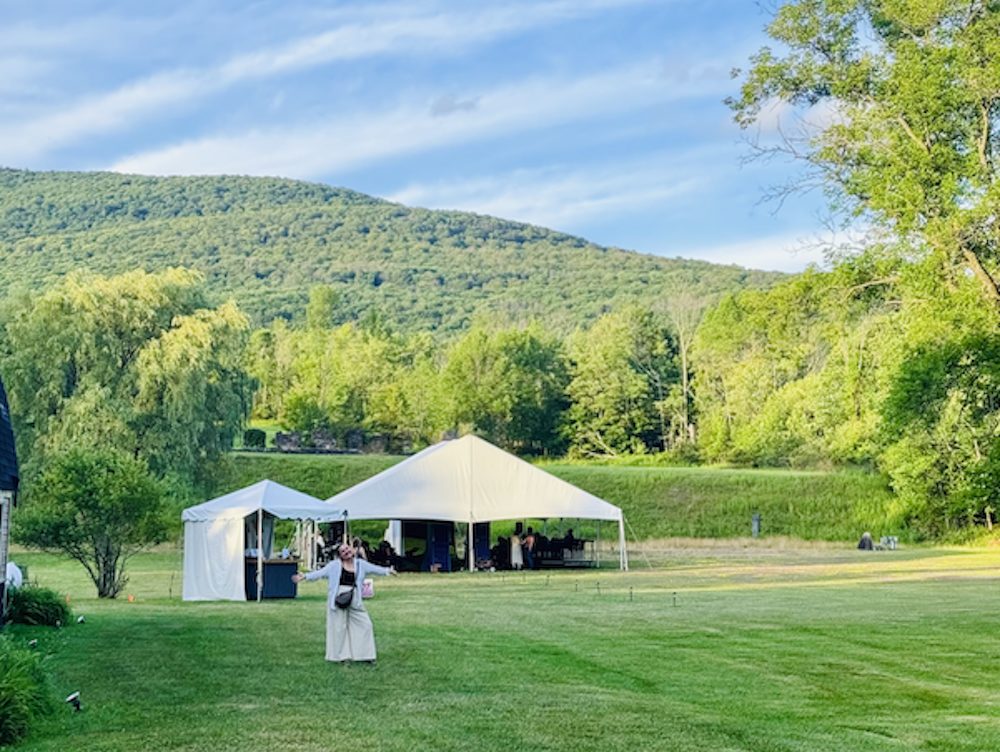
Photo by Jess Basil
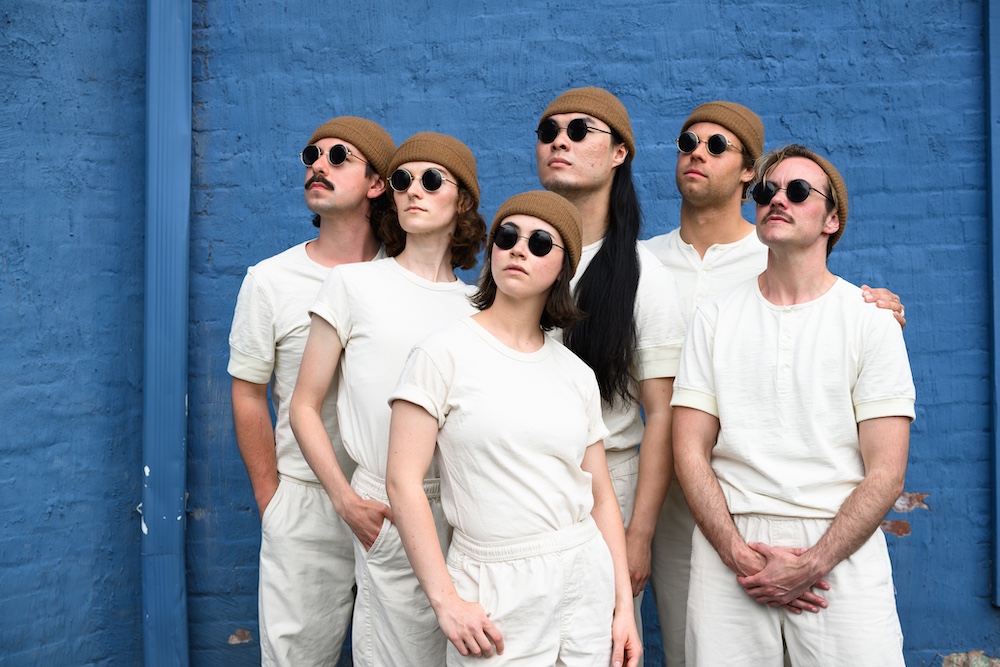
Photo by Ryan Grae
You say in your bio that you work to bring “Shakespeare’s classical text to life in a contemporary format.” How do you do this to satisfy both die-hard devotees of the Bard and theater-goers who are not as familiar with his work?
I had a long-time patron describe our take on Shakespeare as “irreverent and clear,” which I think is the most succinct description I’ve heard! In a contemporary sense, there are many traditional rules I don’t feel the need to follow. Most obviously is how we throw gender expectations almost entirely out the window, and our bold and daring design sensibility. I love leaning on the theatricality of these plays, in this place, at this time. More plainly, I mean showcasing that this isn’t a movie or a television show, but a play, often outside, and there are real bodies right in front of you telling the story. That being said, I do follow a very traditional classical training and find many elements of that to be critical. Those that are part of our company and that we work with year after year are all experts at using the text, making it clear without making it casual, and being heard outside, which is harder than you think!. So hopefully the diehards are pleasantly surprised, both by the clarity of storytelling and the creativity imbued within our productions. And as for those who join us as first-time Shakespeare-goers, we’re very proud to open that door for them, and show that this isn’t your momma’s Shakespeare!
I think it’s also important to say that the beauty of Shakespeare is that there actually isn’t one or even ten right ways to do it. As long as the story is clear and people can hear you, everyone’s taste is valid. This just happens to be mine. In the end, it’s all about the story, and I want people to enjoy them as much as I do.
I understand you also have a career as a much-in-demand voiceover artist, with a specialty in books. How did you get involved in the field, and what have been some of your recent projects? And, lastly, how do you think the emergence of AI will impact your work?
Ever since I moved to NYC and started my professional career, I’ve been pursuing voiceover work. I’ve always been an avid reader, so I think that’s where my interest in it probably comes from. Recently, I was blessed to work on a book with Penguin Random House, Everyone Is Lying To You by Jo Piazza. It’s since been an Apple Audiobook Pick, a Good Housekeeping Book Club Pick and a National Best Seller. I have some other very exciting projects coming up, but I can’t speak to them quite yet.
As for AI, it is such a divisive topic. All I can do is continue to believe that human voice, surprise, and mistakes will be more interesting than a perfectly manufactured machine voice. For now, at least, I’ve been very lucky that I haven’t seen a dip in work. Fingers crossed that it will remain that way.
I understand that you are a new mother. How has motherhood impacted the way you work, and why do you think the Hudson Valley is an ideal place to raise a family?
Motherhood has impacted my work in the most positive way. I’m really lucky that I’ve had the most successful year in my career since my son was born. I don’t know if it’s because I have to be so much more serious about my pursuits, or just dumb luck, but I’m rolling with it regardless.
Raising my son in the Catskills is honestly pretty idyllic. We live on three acres, have private creek access and an amazing swimming hole, numerous friends a short walk away, and even chickens! Not to mention the exciting art thriving all around the Hudson Valley and the Catskills.
What is it about the Hudson Valley that makes it unique to live + work here?
The mix of nature and art, all so easily accessible!
“Raising my son in the Catskills is honestly pretty idyllic. We live on three acres, have private creek access and an amazing swimming hole, numerous friends a short walk away, and even chickens! Not to mention the exciting art thriving all around the Hudson Valley and the Catskills.”
What impact do you, as an artist, have on your community?
I try to cultivate a place where everyone feels welcome and invited, regardless of background, income, age, race, and any other factor. I’m very proud of our accessible values, especially regarding ticket price and bridging the gap between what can be a large financial divide between neighbors.
What local businesses do you rely on to be successful in your career and to enjoy life?
To be successful in business, GnH Lumber is an absolute cornerstone of CMS! Their support is vital. Our partnership with the Catskill Mountain Foundation enables us to produce such high-caliber work. And the support from all the Mountaintop businesses has been amazing. In terms of my personal favorite businesses, they have to be my hometown ones of Van Dusens, The Spruceton Inn, and West Kill Brewing.
What is missing in the area that you wish we had?
A great Thai place!
What would be your dream assignment/gig?
For voiceover work, I’d love to narrate a big fantasy series. For Catskill Mountain Shakespeare, building into a full summer festival is the dream.
Who or what inspires you personally?
Very cliche, but all my friends. I’m lucky to be surrounded by so many artists living full lives that all look different from each other, with the one constant being feeling fulfilled in both art and life (something I think we’re sometimes told is impossible).
Tell us something about yourself that people might be surprised to know.
I love a good dive bar. Karaoke and wings are a plus. And I used to play rugby!
What is your favorite non-musical activity?
Cooking and baking, hanging out with friends and reading!
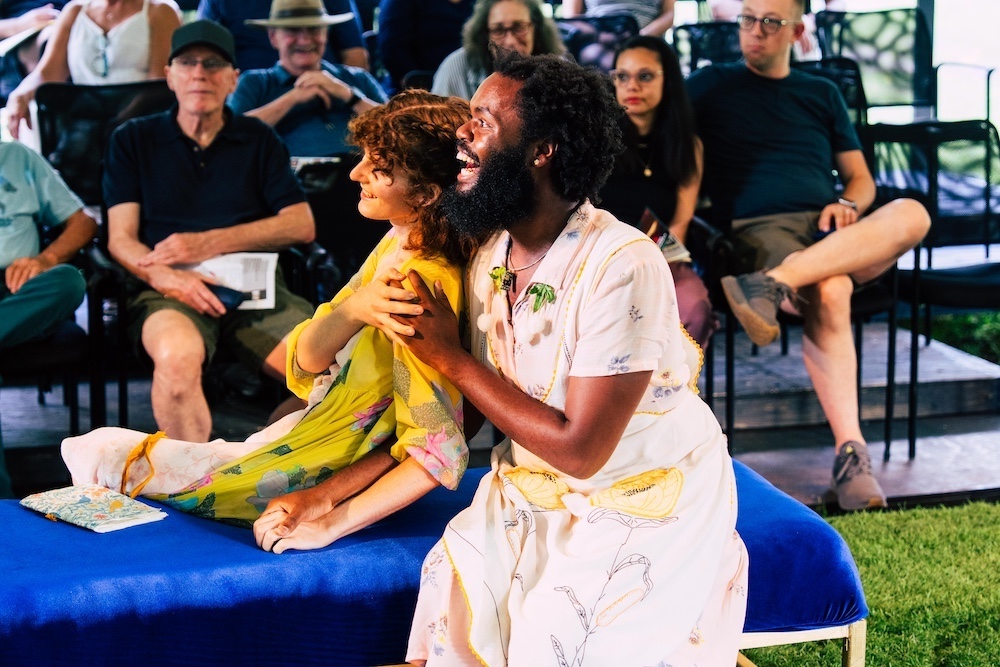
Photos courtesy of Sarah Reny + Rich Wade + Sophie Sahara + Frank Wilderman + Maggie Kent + Jess Basil + Ryan Grae
Contributing writer Sal Cataldi is a musician, writer and former publicist living in Hudson Valley NY.
+ + +
Follow/Connect with Sarah Reny + Catskill Mountain Shakespeare via Website | Facebook | Instagram
Sarah Reny and Catskill Mountain Shakespeare have become synonymous in the world of Shakespearean theater. Sarah’s drive and commitment have made Catskill Mountain Shakespeare a beacon for lovers of the Bard’s works. When one speaks of Shakespeare in the Catskills, Sarah Reny is invariably mentioned, her influence and dedication have left an indelible mark. The organization continues to thrive under her leadership, ensuring the legacy of Shakespeare endures in the heart of New York’s Catskill Mountains.
Click HERE to see all of our exclusive interviews with the amazing folks who proudly call the Hudson Valley home.
Write a Comment
You must be logged in to post a comment.



